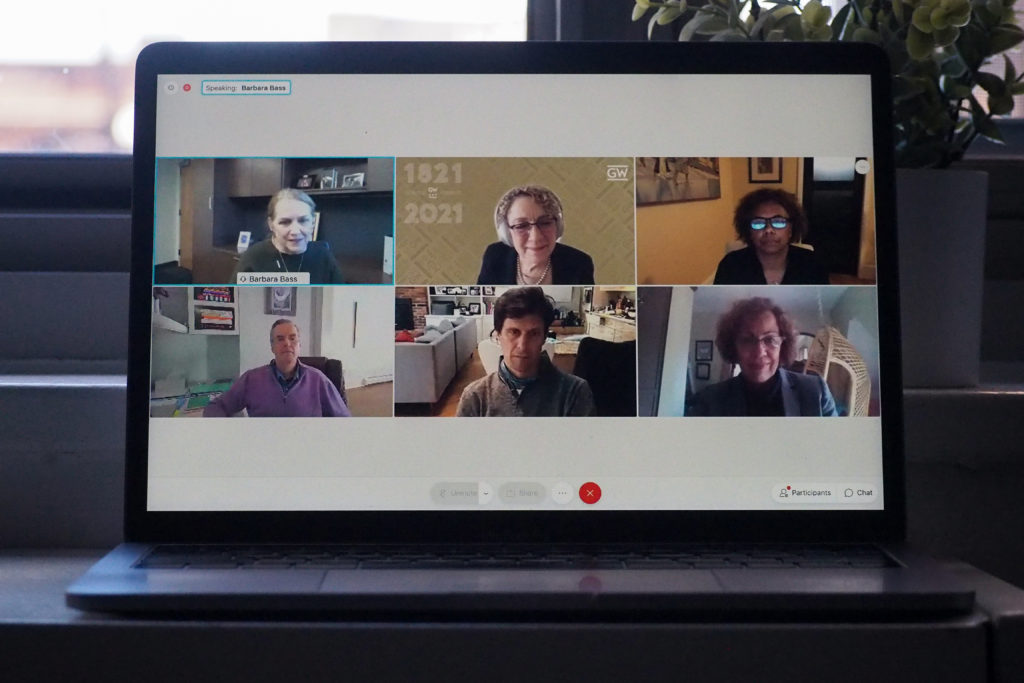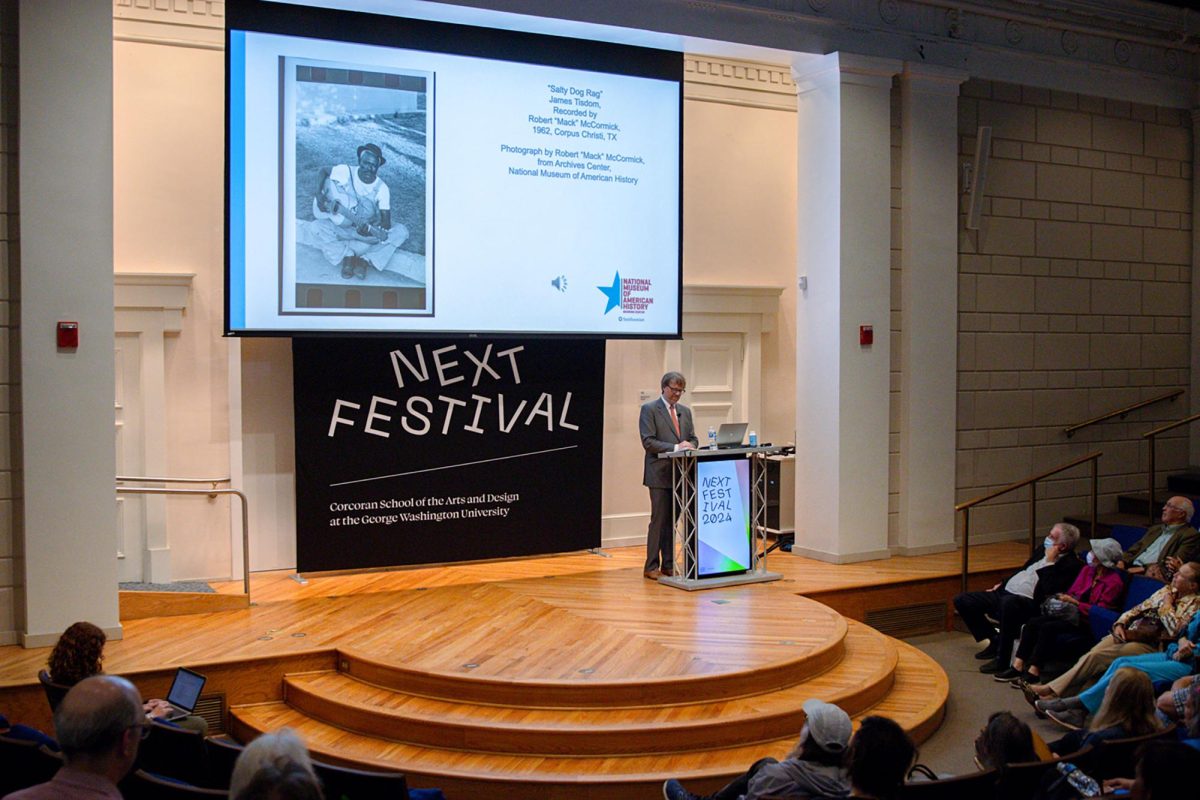A panel of medical experts addressed common questions and misconceptions about the safety of new COVID-19 vaccines Tuesday.
Experts from the Milken Institute School of Public Health, the School of Medicine and Health Sciences and the School of Nursing discussed the technology behind these new vaccines and why they are safe and effective in warding off the virus. Public health school Dean Lynn Goldman moderated the event, which was hosted by the University.
The technology behind COVID-19 vaccines
Jon Andrus, a professor of global health, said the Pfizer and Moderna vaccines use mRNA technologies, a method that isolates genetic material in virus cells and triggers humans to produce spike proteins to fight against the virus.
He said the Johnson & Johnson vaccine utilizes inactivated viral vector technology, which modifies and inactivates the virus to trigger human immune responses.
“It is no longer alive and acts as a shuttle to transport that genetic material when injected into the vaccine recipient that allows it to enter the host cell,” Andrus said. “And again, also like the other vaccine, uses the wholesale proteins making machinery to produce, fight proteins.”
The vaccine’s safety
Janice Blanchard, a professor of emergency medicine, said vaccines are safe because they activate the body’s “natural immune system” to work against the virus. Pfizer also continuously monitors its vaccinated population to measure the safety of its vaccines, she said.
Marc Siegel, an associate professor of medicine, said scientists have not found any safety concerns from the 70 million doses of vaccines that have been injected in the U.S. population.
“One of the concerns with the mRNA vaccine is this the first mRNA vaccine that’s ever been approved,” he said. “But the technology has been around for five to 10 years and has been looked at in many of these disease processes.”
Siegel added that recent developments of new technology could wrap the mRNA in a liquid particle and protect it throughout its way into human cells, creating a “safe and successful” vaccine.
“I’m very, very confident that this is a safe technology,” he said. “It is new, but it has been in the research field for a while.”
Mistrust toward the vaccine
Bill Borden, a professor of medicine and health policy, said health care workers and his patients at the GW Hospital were initially “very anxious” about getting the vaccines. But he worked with employees to start a campaign, a website and a vaccine ambassador program focused on answering frequently asked questions.
“Soon after I got my vaccine, I actually posted on social media, and I had friends, even from grandmas going from the south side of Chicago, who actually told me they got the vaccine because of me,” she said.
Andrus said the process of vaccination is “very emotional” with this pandemic, and he and his wife broke down crying after they got vaccinated.
He said the vaccine companies measured illness to determine the effectiveness of the vaccines against death or hospitalizations. He said studies show a vaccinated person could still transmit the virus to others, and there is more monitoring needed on the current vaccines in terms of their effectiveness against the new variants.
“The quicker we vaccinate, the quicker we’ll handle these variants,” he said. “We need to actually vaccinate the rest of the world, where they tend to emerge.”
All experts said people should not worry about which vaccine to receive in the upcoming months, but they should feel “a sense of urgency” and take the first vaccine that is available to them.
“The first vaccine you can get is the best vaccine to get,” Borden said.







